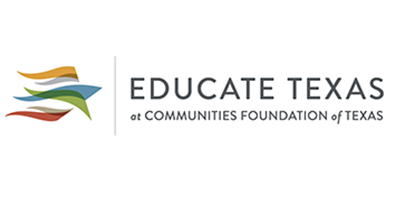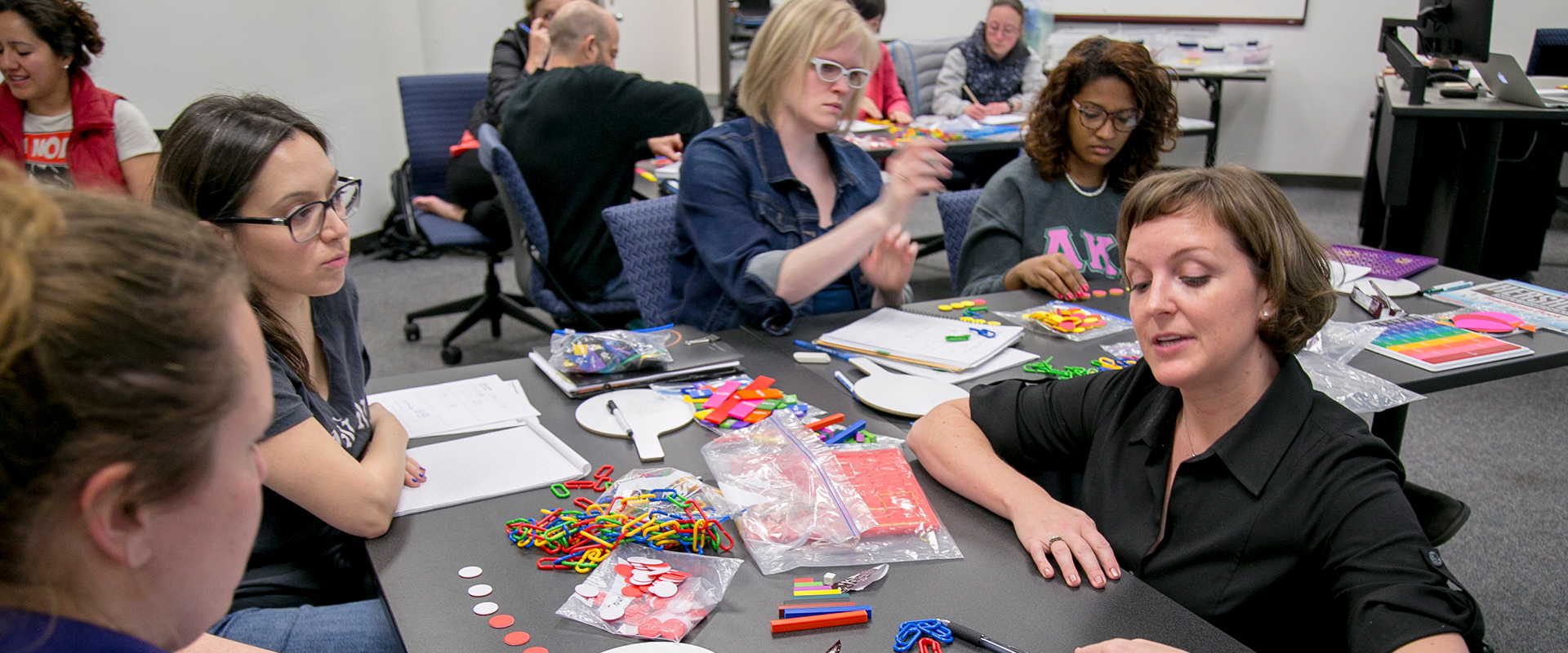The Texas Education Research-Practice-Policy Partnership Network is a network of existing regional partnerships between colleges of education, education nonprofits and education systems who are advancing research that is rooted in authentic engagement with community members and focused on urgent and timely problems of practice and policy identified locally. The RP3 Network is a coordinated statewide effort to accelerate and amplify these existing regional efforts to generate and translate the knowledge, tools and experiences needed to change practice, reform policy, and transform education systems at scale.
About
Background
The idea to develop a statewide education-focused research- practice-policy partnership (RP3) emerged during the pandemic, as researchers and constituents sought to address gaps in research and support educational change.
The pandemic disrupted education in many ways, disproportionately affecting vulnerable students. The pandemic widened existing gaps in academic achievement and long-term life outcomes, threatening the well-being of our Black, Latinx, socioeconomically disadvantaged, and Emergent Bilingual students, as well as students with disabilities.
In response, UT College of Education Dean Charles Martinez and Texas 2036 CEO Margaret Spellings convened a half-day summit in March 2021. The summit brought together researchers and education stakeholders from across Texas to discuss resources and approaches to ensure Texas students could recover and thrive in a post-COVID world, and develop recommendations for educational policy and practice.
They concurred that developing a statewide partnership focused on the nexus of research, practice and policy would be a crucial step to identify and address gaps in research and promote equitable transformation.
Mission, Principles and Values
Mission
The Texas Education RP3 Network conducts collaborative research, supports the translation of results to decision makers at multiple levels, and builds capacity to equitably improve systems and outcomes for Texas students across the lifespan.
Principles
The Network is guided by five core principles:
- Committed to long-term collaboration.
- Directed toward education improvement or equitable transformation.
- Engaged with evidence and research as a leading activity.
- Intentionally organized to bring together a diversity of expertise.
- Dedicated to shifting power relations in research to ensure that all participants have agency and influence.
Values
The Network is founded on four core values:
- Student Voice: We center the assets and needs of students and communities.
- Collaboration and Learning: We value collaboration and learning across people, organizations and communities.
- Equity: We strive to promote equitable outcomes across the state.
- Systems Transformation: We seek to transform systems to improve outcomes for Texas students across their lifespan.
Why RP3
Community-connected Research: Building Confidence, Creating Impact
Community-connected scholarship offers a compelling strategy to deploy the research acumen of universities in ways that address real and persistent social challenges right in their own backyards, providing tangible and demonstrable value for those who live there.
Enter the Texas Education Research Practice Policy Partnership Network. The idea to develop a statewide education-focused partnership research network emerged during the pandemic, as researchers and constituents sought to address gaps in research and support educational change in both practice and policy.
Today the College of Education is the hub of that Network, with members located in communities ranging from El Paso to Harlingen, Dallas to Houston, and Austin to Lubbock, each deeply engaged through long-standing, formal relationships with local education systems, and with formal MOU with more than 48 school districts serving over 1.5 million students, representing 25% of the Texas K12 student population.
The Network has completed its Founding Charter, formed and organized a representative Steering Committee, and mobilized researchers from across the Network in a prototype process to synthesize Network Member findings related to the Texas Teacher Workforce.
The Network is designed to facilitate collaborative education research within and across institutions, support the translation of research findings to decision-makers at multiple levels, and build capacity and institutional support for partnership research. The Network is relentlessly focused on urgent and timely problems of practice and policy identified locally, and the co-generation of knowledge, tools, and resources needed to produce equitable improvements for students and communities across the state. Now.
News and Network Activities
News
Network Activities
If you are interested in advancing collaborative education research done through authentic engagement with community members to address long-standing inequities and disparities; connecting with like-minded researchers across the college, campus and state; improving institutional recognition for partnership research; increasing the impact of your research, then you need to learn more about the RP3 network.
For information about the RP3 Network Research Community, contact Sarah Woulfin (Associate Professor, Department of Educational Leadership and Policy). For information about the day-to-day operations of the Network, events, and communication, contact Carolyn Landel (Director, Texas Education RP3 Network).
Network Newsletter Archive
Emerging Evidence and Insights
Contact
Dr. Carolyn Landel, Director of the Texas Education RP3 Network
carolynlandel@austin.utexas.edu
Our Approach
Built around collaborative education research, the Texas Education Research Practice Policy Partnership Network is rooted in authentic engagement with community members and focused on urgent and timely problems of practice and policy identified locally.
Over the next three to five years, the RP3 Network aims to:
- Emerge as a vital and trusted source for actionable evidence- based products and experiences that teachers, school and district administrators, policymakers and other education advocates
can quickly access, easily understand, and effectively use to advance improvement efforts locally and across the state. - Flexibly and swiftly mobilize partners on policy priorities to position the state to be responsive to future crises like the pandemic that pose a threat to sustained student success, and to accelerate efforts to scale practices and policies that will allow students to thrive.
- Cultivate and grow the community of researchers and partners who adopt this inclusive and collaborative model to ensure Texas leads the nation in translating research to practice in ways that propel students and communities to bright and prosperous futures.

Support
The pace at which research makes its way into practice is too slow; the mechanisms for local educational innovations to be evaluated and shared systematically locally or across the state are uneven; and the channels for communicating research findings and recommendations to state and district policymakers are underdeveloped and underutilized. The challenge is to locate, study, elevate, and scale, and not settle until all students experience great teaching and learning every day of every year.
The RP3 Network is an opportunity for Texas to generate and spread innovative, evidence-based solutions for students, families, and communities that improve education locally and at scale, and to serve as a model of educational innovation and improvement for the nation. Investment in the Network will amplify best practices by connecting problems of practice in schools to researchers and then scaling solutions through intentional engagement with key decision-makers in education systems and policy agencies.
For information on how your philanthropic can support the growth, development, and impact of the Network, contact Ian Tuski, Chief Development Officer, College of Education, UT Austin.
Partners
The College of Education at UT Austin serves as the Network Hub to facilitate a coordinated statewide effort that aims to accelerate and amplify existing regional efforts to generate and translate the knowledge, tools and experiences needed to change practice, reform policy, and transform education systems at scale.
The Network includes two categories of Members that reflect variation in the relationship to research, community partners, and position in the education ecosystem.
- Research-Practice Members are institutions that sustain research partnerships with the local community to support improvement in educational experiences, outcomes, and attainment for their students over the long-term. These members are key to ensuring the Network is rooted in the diverse communities and students of Texas.
- Strategy Members, in contrast, are institutions that access and apply a wide range of research findings to inform their institutional priorities and services, and often work at institutions or agencies that are important in influencing systems change. These members are key in ensuring the Network understands the external landscape and is connected to key points of influence to advocate for system change to benefit local communities.
While their roles in the Network are different, contributions from both categories of Members are valued and important to Network operations, influence and impact.
Research-Practice Members









Strategy Members




FAQ’s
What is a Research-Practice-Partnership?
The William T. Grant Foundation defines a Research-Practice-Partnership as, “A long-term collaboration aimed at educational improvement or equitable transformation through engagement with research. These partnerships are intentionally organized to connect diverse forms of expertise and shift power relations in the research endeavor to ensure that all partners have a say in the joint work.”
The Texas Education RP3 Network, which adds another P for “Policy,” will embody 5 key principles that the Grant Foundation identifies as core to Education-related RPPs:
- long-term collaboration
- working toward educational improvement or equitable transformation.
- features engagement with research as a leading activity.
- intentionally organized to bring together a diversity of expertise.
- employ strategies to shift power relations in research endeavors to ensure that all participants have a say.
Additional information on research-practice partnership and examples of models across the country is available through the National Network of Education Research-Practice Partnerships.
How can faculty get involved in the RP3 Network?
The Network uses a multiple-faceted process to select research themes that are community-centered, justice-centered, and policy relevant. The insights gathered through these processes, combined with community dialogue mediated by Network Members, and strategic counsel offered by Strategy Members, define Network research priorities.
Research faculty play critical roles in contributing to a wide range of research activities and products.
Synthesizing evidence on an education issue in TX to provide a foundation for future Network research while also serving to guide evidence-based decision making.
Aggregating insights from Network members in connection with their community to summarize core findings from each region, describe how and why there are similarities and differences across contexts, and discuss implications for improving practice and policy at the local and state level.
Generating collaborative research designs that addresses community-based needs shared across multiple sites. Across sites, members will collect and analyze multiple forms of evidence to answer a shared set of research questions.
For information on how you can contribute to research activities in the Network, contact Sarah Woulfin, Network Research Liaison, and Associate Professor, College of Education at the University of Texas
Why UT Austin College of Education?
The College of Education (COE) is in a unique position to leverage the scale and reach of the University of Texas and its resources to positively impact educational outcomes in Texas. The mission of the Network aligns with the University’s goal to change the world through transformative research that tackles society’s biggest challenges. The COE is proud to serves as the administrative and operational home to support the day-to-day activities of the Network to drive significant and lasting change that will benefit Texans.
